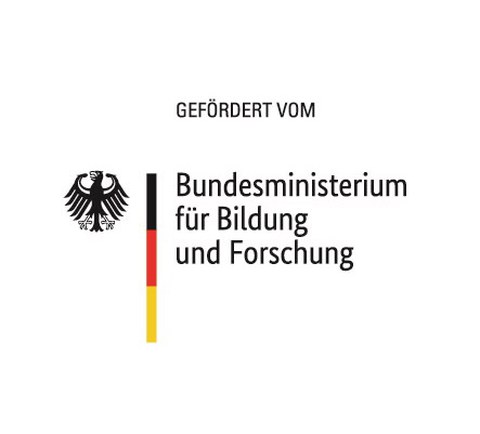MORE STEP - Mobility at risk: Sustaining the Mongolian Steppe Ecosystem
MORE STEP is a collaborative and transdisciplinary research project conducted by Mongolian and German partners. The project brings together social and ecological sciences to identify societal drivers that can lead to an ecological tipping point of the Mongolian steppe ecosystem. The objective is the early identification of processes leading to potential tipping points including possible consequences for nature and society. MORE STEP particularly emphasizes the significance of mobility of wildlife and livestock in the context of societal change and aims to contribute to the sustainable development of the Mongolian Steppe ecosystem.
The Chair of Ecosystem Services contributes to the research project with its expertise in economics and policy analysis. More specifically, the following research activities are conducted:
- Based on a literature analysis and analysis of available statistical data (at the national level, regional and local levels), the case study region is characterized from a socio-economic perspective and the historical Mongolian context since the 1990s presented.
- The existing policy instruments are analyzed and recommendations for the development of suitable policy mixes for the protection and sustainable use of Mongolian steppe ecosystem and for the improved provision of public services in rural areas developed.
- Policy options to protect wild herbivores and ecologically valuable steppes as well as the sustainable use of steppe ecosystems by nomadic pastoralists are explored and analyzed.
- The research results and policy measures relevant for the sustainable development of the Mongolian steppe ecosystem are presented and discussed in stakeholder workshops with scientists, political decision-makers, authorities and relevant NGOs in Mongolia.
Personnel:
- Prof. Dr. Irene Ring (Lead)
- Dr. Ulan Kasymov (Research fellow)
- Dr. Oyundelger Khurelpurev (Research assistant 2019 – 2022)
- Margad Uvgunkhuu, MSc (Research assistant 2019 – 2020, 2022)
Project partners:
- Senckenberg Biodiversity and Climate Research Center (Coordination)
- Hustai National Park Trust Mongolia
- Centre for Nomadic Pastoralism Studies Mongolia
- Institute for Social-Ecological Research – ISOE, Frankfurt am Main
- School of Economics and Business, Mongolian University of Life Sciences
- Department of Biology, National University of Mongolia
- Senckenberg Museum of Natural History Görlitz
- International Institute Zittau, Technische Universität Dresden
- Ludwig-Maximilians-Universität München
- Philipps-Universität Marburg
- Wildlife Conservation Society Mongolia
Project duration: 01.03.2019 – 30.06.2023
Funding: German Ministry of Education and Research (BMBF), under the research program “BioTip – Tipping Points, Dynamics and Interdependencies of Social-ecological Systems”.
Project website: https://www.morestep.org
Publications:
Kasymov, U., Ring, I. Gonchigsumlaa, G., Dejid, N., Drees, L. (2023). Exploring complementarity among interdependent pastoral institutions in Mongolia. Sustainability Science. doi.org/10.1007/s11625-022-01198-9
Kasymov, U., Ring, I. (2021). Exploring Institutional Complementarity and Social Thresholds of Mobility in Pastoral Social-Ecological Systems in Mongolia. Paper presented at the XXIV International Grassland Congress / XI International Rangeland Congress (Sustainable Use of Grassland and Rangeland Resources for Improved Livelihoods), 25–29 October 2021. Available at https://uknowledge.uky.edu/igc/24/6/25
Busch, J., Ring, I., Akullo, M., Amarjargal, O., Borie, M., Cassola, R. S., Cruz-Trinidad, A., Droste, N., Haryanto, J. T., Kasymov, U., Kotenko, N. V., Lhkagvadorj, A., Lima de Paulo, F. L., May, P. H., Mukherjee, A., Mumbunan, S., Santos, R., Tacconi, L., Verde Selva, G., Verma, M., Wang, X., Yu, L., Zhou, K. (2021). A global review of ecological fiscal transfers. Nature Sustainability, 4, 756–765. doi.org/10.1038/s41893-021-00728-0
Yu, L., Kasymov, U. (2020). Social construction of pastureland: Changing rules and resource use rights in China and Kyrgyzstan, International Journal of the Commons, 14(1), pp. 1–15. doi: 10.5334/ijc.940.
Kasymov, U., Oyundelger, K., Uvgunkhuu, M., Ring, I. (2020). Regional socio-economic report. Research report of the BioTip project MORE STEP – Mobility at risk: Sustaining the Mongolian Steppe Ecosystem. International Institute Zittau, Technische Universität Dresden, Zittau.
Matias, D. M., Drees, L., Kasymov, U., Dejid, N., Batbuyan, B., Dashpurev, T., Dorj, U., Gonchigsumlaa, G., Müller, T., Ring, I., Mehring, M. (2020). Mobility at risk: Sustaining the Mongolian steppe ecosystem –developing a vision. Stakeholder involvement and identification of drivers and pathways towards sustainable development. ISOE-Materialien Soziale Ökologie, Nr. 62. Institut für sozial-ökologische Forschung (ISOE) GmbH, Frankfurt am Main.
Master theses:
Fezakov, M. (2021). A global review of grassland policy instruments and their impact on the conservation and sustainable use. Master thesis, Hochschule für Nachhaltige Entwicklung Eberswalde, Eberswalde.
Zhou, K. (2021). Options for Ecological Fiscal Transfers in Mongolia. Master thesis. Chair of Ecosystem Services, International Institute Zittau, Technische Universität Dresden, Zittau.

